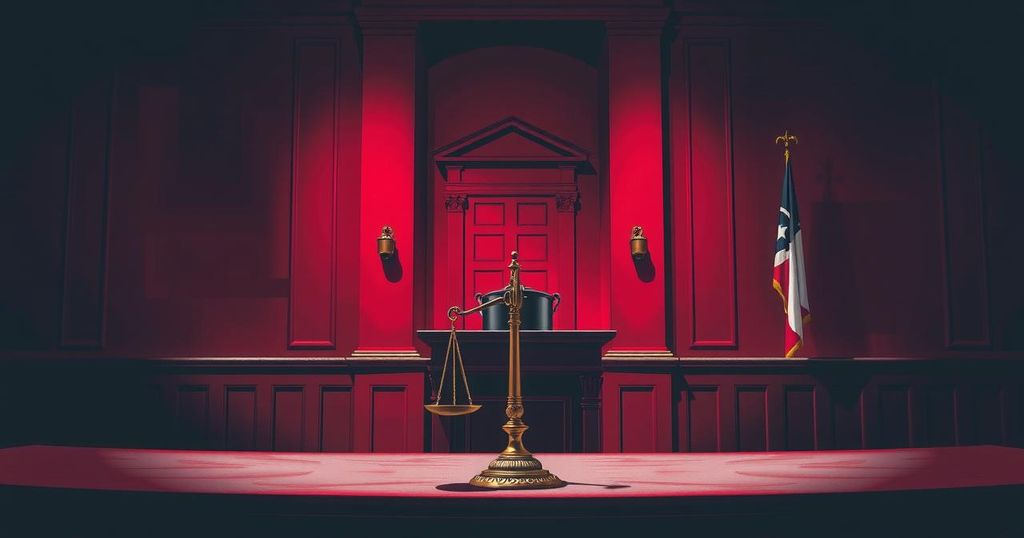Gambian Torture Victims Testify in Denver Against Former Dictator’s Soldier

Gambian torture victims testified in Denver against former military officer Michael Sang Correa, accused of torture during Yahya Jammeh’s regime. Pharing Sanyang detailed brutal beatings, coercion for false confessions, and ongoing efforts for justice. The trial underscores a larger movement to hold perpetrators of human rights abuses accountable globally.
In a pivotal moment for justice, Gambia’s torture survivors have taken the stand in a Denver courtroom against Pharing Sanyang. On Thursday, Sanyang recounted the brutal treatment he endured at the hands of Michael Sang Correa, a former soldier accused of committing acts of torture on suspected coup plotters during the regime of Gambia’s former dictator, Yahya Jammeh. The courtroom heard chilling testimonies of beatings with pipes, palm tree branches, and even a hammer.
Sanyang described how particles of dirt from the ground entered his eyes during a beating in 2006, resulting in injuries that required multiple surgeries. The former military officer testified against Correa, who faces charges tied to aiding in the torture while serving with the Junglers, a notorious military unit under Jammeh’s direct command. This case is notable; Correa was indicted in 2020 under a seldom-used U.S. law allowing for the prosecution of international torture cases.
In court, Sanyang recounted his harrowing experience signing a false confession under duress, claiming blood was smeared on the document as evidence of torture. He disclosed that he was forced to read this confession on camera while still in a state of pain, emphasizing the sound over visuals to mask the brutality he had faced. “I had to save my body,” he stated, clarifying that he did not participate in the coup attempt against Jammeh, who himself had come to power through a coup in 1994.
After spending nearly ten years imprisoned on treason charges, Sanyang fled to Senegal. Meanwhile, Correa, who had relocated to the U.S. in 2016 as a bodyguard for Jammeh, overstayed his visa after the dictator was ousted in 2017. Prosecutors informed the jury that ever since, Correa has been living in Denver and working as a day laborer.
Other alleged survivors, who traveled from various parts of the world, also testified about their experiences. Prosecutors displayed photographs showing the torture marks on their bodies, asking them to identify their scars and recount the experiences tied to them. While Correa’s legal team has acknowledged his role in the tortures, they argue he was a low-ranking private subjected to threats against his life if he defied orders.
Testimony from Demba Dem corroborated the grim reality of the torture inflicted by the Junglers. He recounted being hooded, beaten, and subjected to extreme physical pain, such as having hot metal held near his face. Dem, a former teacher turned politician, eventually sought asylum in the Netherlands due to his traumatic past, where he was later diagnosed with PTSD. Despite his struggles, Dem expressed gratitude for being present in court, hoping to bring accountability to his torturers.
In an effort to seek justice, the trial is set to continue into the following week. This case brings to light the ongoing quest for justice in Gambia, where a 2021 truth commission has called for the prosecution of those responsible for crimes under Jammeh’s rule. Globally, other nations are starting to hold accountable significant figures from Jammeh’s regime; for instance, last year, a Swiss court sentenced his former interior minister for crimes against humanity.
The outcome of Correa’s trial could mark a significant moment not only for the victims in this case but for broader efforts towards justice for the horrors inflicted during Jammeh’s rule in Gambia.
The testimonies of Gambian torture survivors in Denver aim to hold former military officer Michael Sang Correa accountable for acts committed under the dictatorial regime of Yahya Jammeh. As survivors recount their harrowing experiences, the trial reflects the ongoing quest for justice and the efforts of multiple nations to address human rights violations perpetrated by Jammeh’s administration. The case signifies a pivotal moment in the fight against impunity for such atrocities.
Original Source: www.denverpost.com







